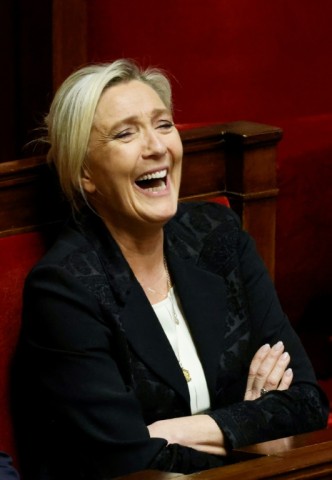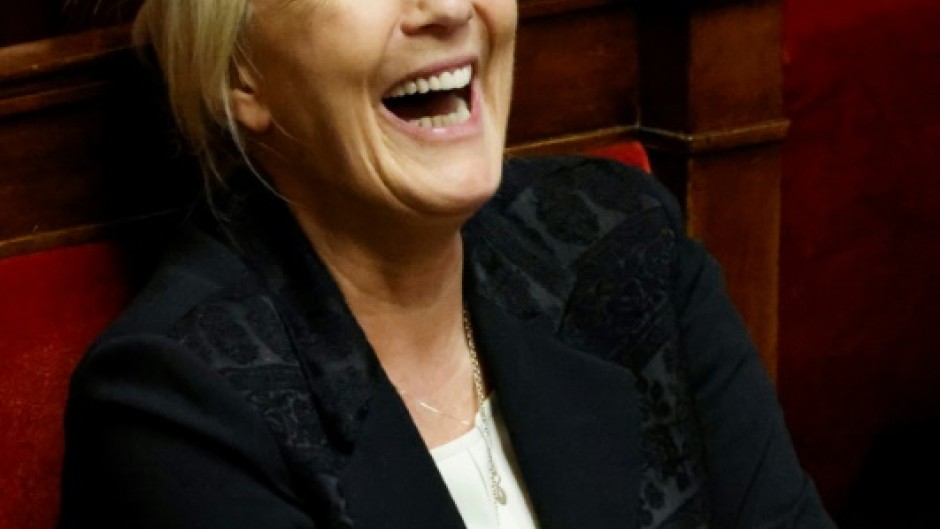PARIS - France's health minister resigned as the government of President Emmanuel Macron on Wednesday sought to quell a party revolt over the passing of tough new immigration legislation backed by the far-right.
Following 18 months of wrangling over one of the flagship reforms of Macron's second-term, both chambers of parliament backed the controversial legislation on Tuesday, with Marine Le Pen's National Rally (RN) endorsing the bill in a move some media dubbed a "kiss of death".
Around a quarter of the 251 lawmakers in Macron's camp voted against the bill or abstained and several left-wing ministers have registered their opposition to the bill.
Health Minister Aurelien Rousseau resigned, although there were no immediate signs of other ministers following suit despite fears overnight.
Rousseau did not attend a cabinet meeting on Wednesday morning and would be replaced on a temporary basis by junior minister Agnes Firmin Le Bodo, government spokesman Olivier Veran said.
"There is no ministerial revolt," he added.
Macron was expected to address the reform in a television interview on Wednesday evening, while Prime Minister Elisabeth Borne sought to put on a brave face, saying the adoption of the law had not provoked a "crisis in the majority."
Speaking on France Inter, Borne admitted that some of the provisions were probably unconstitutional, adding that the text "would have to evolve" once it had been examined by the Constitutional Council after referral by Macron.
"We wanted to pass a law on useful, effective measures that our fellow citizens expect, with two objectives: to remove more quickly and more effectively those who have no right to be in France, and to better integrate those we choose to welcome," she said.
At Wednesday's cabinet meeting, Macron declared that there are in the text "things that I don't like but which are not against our values", a participant, who asked not to be named, told AFP.
- 'Deep scars' -
The text of the bill had to be hardened under pressure from the right, but Borne stressed that in the end the ruling party did not need the support of Le Pen's far-right RN to push the bill through.

Beating Le Pen to secure five more years in 2022, Macron has vowed to stave off her rise, but he has been accused of pandering to the far-right to push through his reform agenda.
"The immigration law will leave deep scars," said French right-wing daily Le Figaro, adding that Macron "had lost on all fronts".
Liberation, the left-wing newspaper, for its part spoke of a "moral defeat" for his party.
France has a long tradition of welcoming refugees and immigrants, but a rise in the number of asylum seekers, a chronic affordable-housing shortage, and a cost-of-living crisis have worsened social tensions in the country.
Dozens of NGOs have slammed what they described as potentially the "most regressive" immigration law in decades.
A key element of the law is that social security benefits for foreigners will now be conditioned on five years of presence in France, or 30 months for those who have jobs.
Migration quotas can also now be agreed and there are measures for dual-national convicts being stripped of French nationality.
- 'Disgusting victory' -
"It's a total victory for the ideas defended by Marine Le Pen," said far-right lawmaker Jean-Philippe Tanguy.
The head of the conservative Republicans (LR) party, Eric Ciotti, hailed the adoption of the law as a "historic victory for the right".
The left-wing opposition slammed the measures.
The head of the Socialist deputies in the Assembly, Boris Vallaud, accused the government of "giving in to the most rancid ideas".
Radical left-wing leader Jean-Luc Melenchon denounced a "disgusting victory".
A hot-button issue in France, as elsewhere in Europe, immigration regularly inflames the political class.
On Wednesday, EU countries and lawmakers reached an agreement on an overhaul of the bloc's laws on handling asylum-seekers and migrants, officials said.
The issue has taken on a harder political edge in Europe in recent years with the rise of nationalist anti-immigrant parties in several EU countries, including Italy, Sweden and the Netherlands.
bur-sjw/as/cw
By Anna Smolchenko

